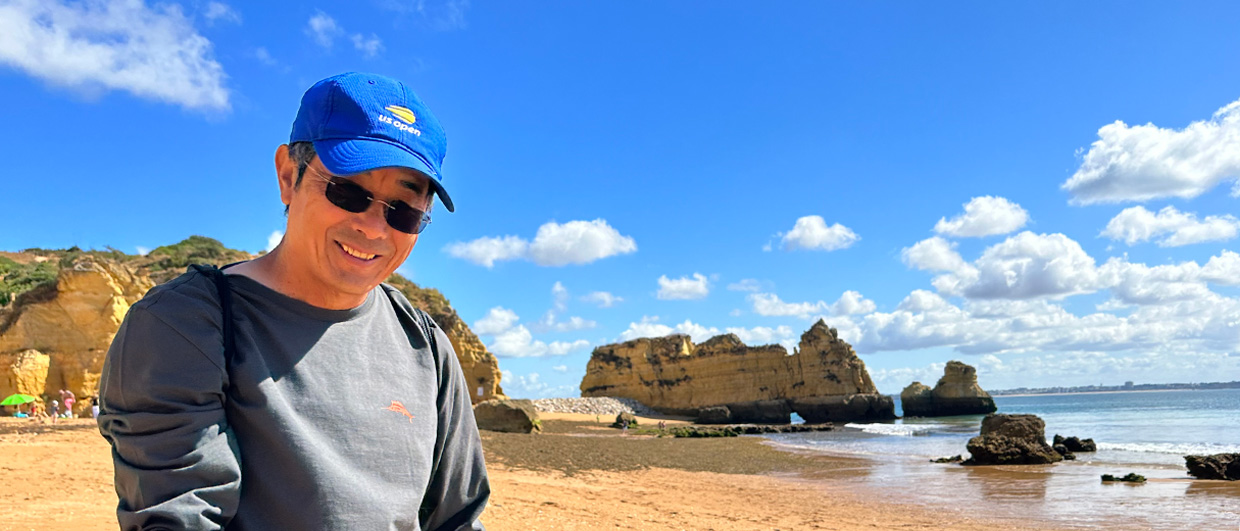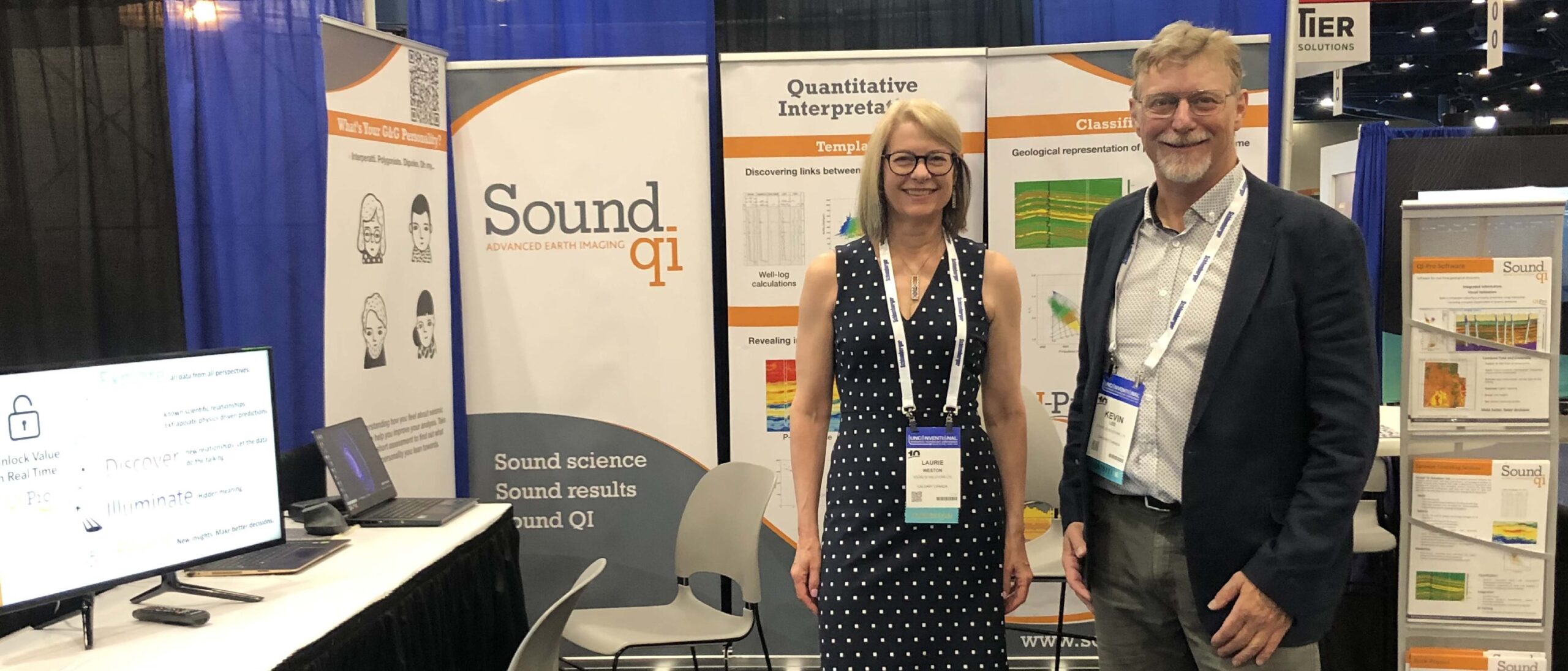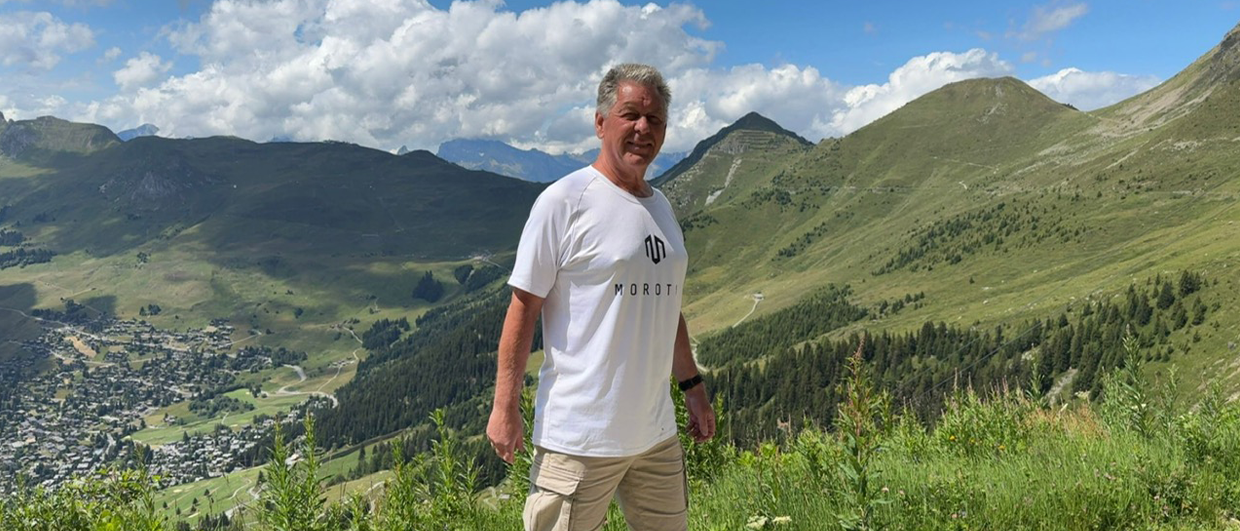We talk to Bruce Levell, Visiting Professor in Earth Sciences at Oxford University, about the need for collaboration between government, academia and the industry
Having spent many years as a geologist in the E&P industry, Dr Bruce Levell is now Visiting Professor in Earth Sciences at Oxford University, and therefore well placed to discuss the need for collaboration between government, academia and the industry.
Why is industry-government-academia collaboration important?
Prof. Bruce Levell in the field in Scotland.
The hydrocarbon industry collects stunning data from the subsurface: high quality seismic, well data and fluid and rock samples. However, due to chronic time pressure, the industry often cannot use all their data, and sometimes is not aware of newly-developed or refined techniques to extract even more information from it. Conversely, due to confidentiality, academics are frequently not aware of industry data; they are idea-rich and data-poor. In my view there is therefore a great opportunity to simultaneously increase the efficiency of hydrocarbon exploration and development and the efficiency of scientific research by bringing these two communities closer together. This happens all the time; the challenge is to make it more structured, rather than the current reliance on personal networks and chance contacts. I feel that the professional societies could play a bigger role in extending the interface with academia to less traditional subject areas and to university departments that have not previously worked with the industry.
For me the role of government in this process is to increase the public availability of data. This would increase the development and testing of exploration ideas and force more collaboration, as companies will seek to take advantage of their limited confidentiality periods.
Is there enough collaboration between countries and regions?
In the interest of efficient exploration and development more data-sharing across borders is always better. This unfortunately already goes wrong at very basic levels – ask anyone who has tried to export rock or fluid samples. The answer is education of the officials. I’m not a fan of research consortia with large numbers of international players; the number of necessary relationships increases factorially.
Should governments take the lead more?
In forcing industry collaboration with academia – no. Good research normally comes from a good science question – governments are not the best equipped to provide those. However, they can be important enablers, especially if open to the idea that sharing data and ideas is better for the national economy than keeping it secret. A government’s choice of reward structure for academics is also relevant. Industry people read articles to find resources, not to quote. The impact of economic geology papers on economic activity may be very high, but that may not help an academic career.
Do we need a deeper level of collaboration?
Yes. In my view the hydrocarbon industry will remain an important source of energy for several decades as we collectively work our way through the twin problems of overhauling the world energy system, replacing hydrocarbons with renewables; and building the infrastructure to deal with whatever climate change is coming our way.
However, the role of the industry is simply not accepted by a large influential slice of public opinion. It needs to be more transparent in order to engender a degree of trust in its honesty with respect to, for example, emissions, leaks or induced seismicity. In my opinion the industry needs to openly collect data on its own activities, which could be shared with sceptical independent academics – such as, for emissions, atmospheric scientists. This could reassure the public that industry claims such as “our operations are safe and secure” are verified. I believe it is to the industry’s advantage to volunteer such collaboration before it is regulated.
During a downturn, is collaboration relevant and cost-effective?
Collaborations and partnerships are long term and should ride through commodity price cycles if possible. A commitment to fund a PhD for four years can’t be dropped because of a price crash. Better a lower but stable level of funding than a cyclical one.
You called a conference presentation ‘Collaboration, the Underground and the Resistance’. Why?
I’m glad you noticed the title! Well, the session was called the ‘Collaboration Workshop’ and it struck me that the word collaboration can be negative: collaboration with the enemy. Also, many in academia, taken across all subjects, would currently see working with the oil industry as ‘collaboration with the enemy’. I wanted to highlight this, as a backdrop to the proposal to widen collaboration on the monitoring of assets and operations, as mentioned above, which I think would help reduce the number of people who saw collaboration as a bad thing. The ‘Underground’ stands for the subsurface – our main activity area. And the ‘Resistance’ are the blockers to collaboration, some of which we have discussed. The title as a whole is a bit contrived but it did allow me to start the presentation with a picture from the BBC comedy series ‘Allo ‘Allo, set in wartime France, which was widely shown across Europe – and perhaps helped people remember the talk.





